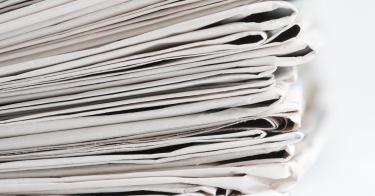American newspapers, their workers, and readers dodged a protectionist bullet last week when the U.S. International Trade Commission unanimously blocked the Trump administration from imposing tariffs on Canadian newsprint.
The Commerce Department had proposed the tariffs in the belief that Canadian paper producers were dumping product in the U.S. at unfair prices. It came to that conclusion at the urging of a New York-based hedge fund that owns North Pacific Paper Co. (Norpac) in Washington state.
The International Trade Commission ruled Aug. 29, however, that the imports were not materially injuring U.S. producers.
In reality, the proposed tariffs themselves—collected on a provisional basis beginning in January—caused material injury to the entire newspaper industry as prices for newsprint rose by as much as 30 percent.
Paul Boyle, senior vice president at the News Media Alliance, told The Wall Street Journal: “This whole play by Norpac basically disrupted an entire industry.”
The Tampa Bay Times cut nearly 50 jobs as a result of the tariffs, and the Pittsburgh Post-Gazette announced a reduced publishing schedule from seven days a week to only five.
In fact, at least 24 local newspapers cut publication days or shut down entirely due to the rise in the cost of newsprint.
So now that the International Trade Commission has restored some order to the flailing newspaper industry, let’s hope policymakers will do better next time and not put in place harmful trade barriers to reward well-connected lobbyists.
Writing in The Wall Street Journal, Steve Forbes, chairman and editor in chief of Forbes Media, offered keen observations on the proposed newsprint tariffs:
All businesses must adapt to survive in a free market, and newspapers are no different. While the government has no responsibility to safeguard newspapers from market forces, it shouldn’t hasten their demise by shielding a single company from market forces.
Norpac’s tariff campaign is one of overt cronyism—asking Washington politicians for a favor at other parties’ expense. The newsprint tariffs are a heavy new tax on struggling businesses and an unjustified burden on a cherished institution, the American newspaper.
Policy decisions do not happen in a vacuum. In trying to prop up Norpac, other companies with many more employees suffered material loss and the vitality of America’s free press was assailed.
Policymakers should take a closer look the next time lobbyists for special interests ask them to erect barriers to the freedom to trade, and thus undermine our overall economic freedom.
This piece originally appeared in The Daily Signal




